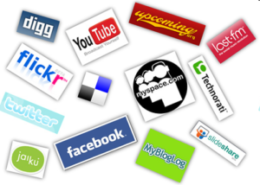


Crisis and Reputation Management Increasingly are About Managing Social Media
[By Thom Fladung, Hennes Communications]
How fast is social media at reporting on events – including events that your organization might consider a crisis? Faster than you.
Consider a situation involving a school in Westfield, N.Y., that we stumbled upon. Here’s the first paragraph of a story from the Westfield Republican:
“Parents need to realize that we will never be able to notify them of an incident before it hits social media,” Ripley Central School District Board of Education President Robert Bentley stated at the board’s regular meeting on December 14.
The incident involved a minor school bus mishap with no injuries. What jumped out at us was the board of education president’s brutal honesty in acknowledging a reality of these times: The people you care about the most – your key stakeholders – are more likely than ever to find out something about you – especially if it’s bad – via Facebook, Twitter or some other social media outlet before you can tell them.
Now do you think it’s important to have a strategy and plan for how you’re going to communicate on social media when the bad thing inevitably happens to you?
Kenneth Trump’s job is school security, planning for school emergencies, school crisis consulting and more. His company, National School Safety and Security Services, is a nationally known firm based in Cleveland. Trump (no relation to Donald Trump) feels the school officials’ pain.
“Social media presents today’s school administrators with one of the greatest challenges they face in their leadership roles,” Trump says. “Rumors, misinformation, fake news, school-community politics and critical incidents can all play out in social media. School administrators, who are used to maintaining tight control of their school operations and their communications messaging, are increasingly finding themselves challenged and frustrated in today’s social media world.”
The old formula applies in the new social media age: Bad news travels fastest.
“When a school security incident strikes, school leaders often find themselves playing ‘catch-up’ under the best of circumstances,” Trump says. “Whether it is a critical incident like a school shooting or a controversial forceful intervention with a student by a school police officer, information and misinformation that used to spread in hours and days now spreads in seconds and minutes.”
The fundamentals of effective crisis management also still apply: Plan before the crisis hits.
“While there is typically a gap in time between when social media buzz starts and school leaders officially communicate, strong planning and preparation by school administrators and their communicators can help tighten that messaging gap,” Trump says.
At Hennes, we counsel clients to get involved on social media now – before the crisis.
“Smart school leaders,” Trump says, “can use social media to proactively communicate on school safety with their school community on their many safety, security and emergency preparedness initiatives. By getting out front and communicating about school safety when there is not a crisis in their districts, school leaders can define themselves as the best source for credible information if a security incident does actually occur in their schools.”
Schools may be in a particularly vulnerable position on social media given the investment and interest parents and students have, the many challenges schools can face and the overwhelming presence of social media among students. But social media is now front and center for virtually every type of crisis.
Here are some of the basic guidelines we use for effectively using social media before the crisis:
- Know where your audience lives. Are the people who care most about your organization more likely to be on Facebook, Twitter, Instagram, your own website, all of the above? You can’t get to your key stakeholders during a crisis if you don’t know where they are.
- Secure your accounts. Make sure your social media accounts aren’t subject to being hacked or hijacked.
- Make certain you can access Facebook, Twitter and other social media platforms yourself, at a moment’s notice. Especially if you’ve outsourced that work to third-party marketing or PR firms, if they’ve activated Two-Factor Authentication (a secondary layer of security to make it more difficult for your account to be hacked), you may find yourself unable to access those accounts, even if you have the screen name and password.
- Establish social media guidelines. Do your employees understand expectations about what to say and when to say it on your Facebook pages and Twitter feeds? And what about their personal social media outlets?
- Build a following, promote interaction. If your social media followers trust you before the crisis, it’s a lot more likely they’ll trust you during it.
Social media can be a crucial asset to leaders concerned about their own or their organization’s reputation. But you must understand it and embrace it. Or take your chances.
Thom Fladung worked at newspapers for 33 years before joining Hennes. For more on how to effectively communicate amid a crisis or reputation-challenging event, contact Hennes Communications and ask about our social media training sessions.
